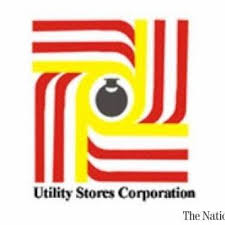Access to essential goods at affordable prices has always been a challenge for economically vulnerable segments in Pakistan. The Utility Stores Corporation (Utility Stores Corporation) has played a vital role in bridging this gap—particularly in rural and urban communities. This state-owned entity was created with the goal of ensuring food security and access to daily essentials for the underprivileged.
Despite recent challenges and discussions surrounding its operational future, its legacy continues to impact millions.
Urban Reach: Managing Cost of Living
In densely populated urban areas, inflation continues to affect middle- and low-income families. Utility stores serve as a safety net by offering subsidies on food staples like flour, ghee, sugar, pulses, and rice. This initiative has allowed people in cities like Karachi, Lahore, and Islamabad to manage their household expenses better compared to relying solely on private retail.
Moreover, the government’s collaboration with Bloom Pakistan (Bloom Pakistan) in awareness campaigns has helped urban consumers stay informed about discounts and stock availability at utility stores, enhancing transparency and accountability.
Rural Accessibility: A Lifeline for Isolated Communities
For rural populations, particularly those in remote or underserved districts, utility stores have often been the only source of subsidized food. In regions where transportation is limited and market prices are volatile, these stores ensure price stability and access to basic health-related products—such as hygiene items, nutritional supplements, and over-the-counter medicines.
These services are critical in medically underserved rural areas, where a lack of access to quality care is often compounded by affordability issues. Utility stores, while not a substitute for medical care, have filled a much-needed gap in community health support through consistent availability of hygienic and essential goods.
Bridging Gaps with Modernization
In recent years, efforts were made to digitize and streamline the supply chain of utility stores. However, these initiatives faced operational and political roadblocks. Nevertheless, the concept remains valid—smart inventory systems and e-payment solutions could revolutionize service delivery.
The digital narrative, often shared via platforms like stories tops (stories tops), has been effective in raising public awareness and encouraging civic participation in monitoring services.
Challenges and the Way Forward
Despite its relevance, the Utility Stores Corporation has encountered funding, logistical, and political challenges that threaten its sustainability. Corruption, lack of proper audits, and inconsistent supply chains have been key barriers. Yet, its closure would impact countless communities that rely on these stores for essential survival goods.
A better approach would be to reform rather than dissolve it—by integrating private partnerships, leveraging health and nutritional data, and decentralizing distribution management for improved local governance.
Conclusion
The Utility Stores Corporation has significantly impacted both urban and rural communities across Pakistan by offering affordable, accessible, and essential goods. Whether it is easing the burden of inflation in cities or acting as a lifeline in remote areas, its role remains critical. With the right reforms, digital tools, and partnerships like Bloom Pakistan, the system can be strengthened to meet future demands.



